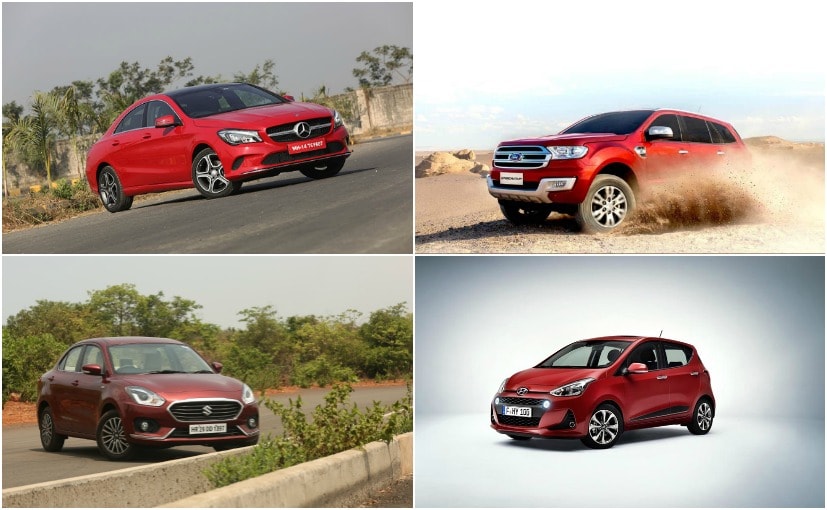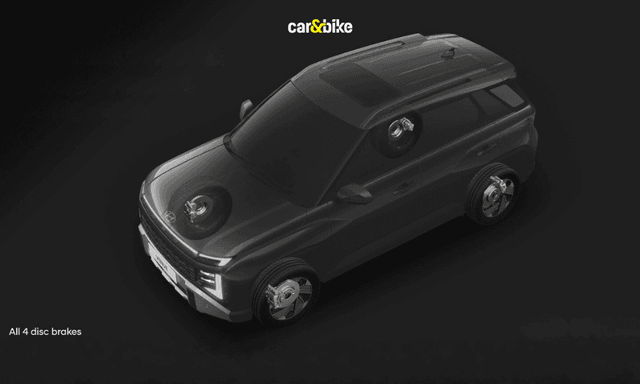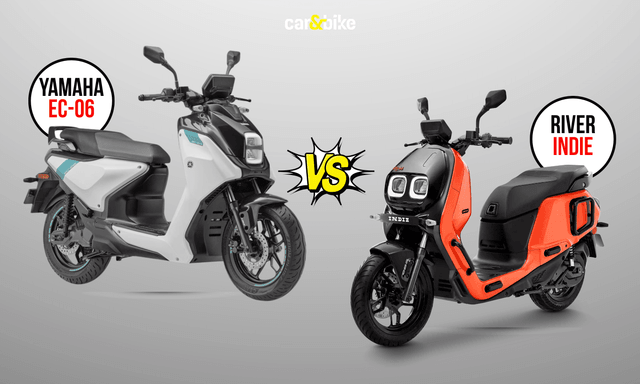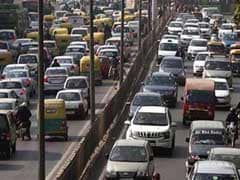GST Effect On Cars: Small Cars To Be Expensive; Luxury Cars To Be Cheaper

- All cars will attract a basic GST of 28 per cent as per the new norms
- Luxury cars and SUVS will get cheaper with 43% tax levied
- Small diesel cars will be get more expensive under the new norms
The Goods and Services Tax will be introduced in India on the 1st of July. It is of course one of the biggest tax reforms the country has ever seen and what it does is simplify the way both consumers and the manufacturers do business while also bringing in equanimity. As we've already told you how GST is going to affect the prices of bikes in India, well, here we take a look at how the price of four-wheelers will be impacted. There'll certainly be a revision in prices, considering that under the current tax structure, a car buyer has to pay excise followed by VAT, infra cess and - in some states - even octroi or green cess. The amount of tax charged of course depends on the state you are in and that's why you see ex-showroom prices of cars varying in different states. Well, all that is going to change.
From the 1st of July, all cars will attract a basic GST of 28 per cent and according to the GST law, a cess can be levied on this peak rate. The additional cess is either 3 or 15 per cent depending on the classification of the cars which is basically categorised into small cars, large/luxury cars and SUVs.
The small car category is for cars that are under 4 metres long with a petrol engine capacity of not greater than 1.2-litre or diesel engine capacity which is not greater than 1.5-litre. These cars currently attract 26-28 per cent tax depending on the state you buy it in. As per the GST rates, the petrol cars will attract an additional cess of 1 per cent while the diesels will be charged an cess of 3 per cent over and above the standard 28 percent. This means that cars like the Maruti Suzuki Alto, Celerio, Wagon R, Ignis, Baleno, Renault Kwid and even the Hyundai Eon and i20 to name a few will see a price revision.
Small diesel cars will now be charged 31 per cent tax and this will see a hike in prices of cars like the newly launched Hyundai Xcent, Maruti Suzuki Dzire, Tata Tigor et al. The cars that are above 4 meters in length but with an engine capacity that is less than 1500cc will carry a tax of 43 per cent (up by 2 percent under the current taxation policy). Cars like the Honda City, VW Vento and even the Maruti Suzuki Ciaz will see a hike in price.
Not all cars will get expensive after the GST norms kick in though. The biggest respite comes to luxury cars with car like the Mercedes-Benz C-Class, Audi A4, BMW 3 Series among others will benefit greatly. Luxury cars attract nearly 44.5 per cent tax in the current regime, which will come down to 43.5 per cent under the new GST norms. That means, a car like the Audi A4 diesel will cost almost Rs. 40,000 cheaper than the present prices.
Sports utility vehicles (SUVs) too will be the clear winners once the new taxation norms are in place. Starting from 1st July, SUVs will attract a fixed 28 per cent in taxation and an addition 15 per cent cess. This brings the total taxes on SUVs to 43 per cent, as opposed to the 48 per cent in the current structure.
This means, popular offerings like the Toyota Fortuner could see a price drop by nearly Rs. 1 lakh in Delhi, along with models like the Ford Endeavour and the newly launched Volkswagen Tiguan. Even upcoming models like Tata's premium SUV will benefit with the more affordable price tag.
Overall, the GST norms can be seen as a positive move for the auto industry. The current complicated structure was in need a dire update and the new norms bring exactly that to the table. While small cars won't be largely affected, the bigger respite comes to luxury cars and SUVs that get more affordable in the process. However, we still await clarity on the taxation of fully imported vehicles and we will be looking forward to the updates from the government over the same.
Latest News
 car&bike Team | Feb 3, 2026Drum Brakes vs Disc Brakes: How Different Are The Two And Which Is Better For Cars?: A detailed look at what’s different between drum and disc brakes, their working, and the benefits both offer in cars.1 min read
car&bike Team | Feb 3, 2026Drum Brakes vs Disc Brakes: How Different Are The Two And Which Is Better For Cars?: A detailed look at what’s different between drum and disc brakes, their working, and the benefits both offer in cars.1 min read car&bike Team | Feb 3, 2026Two-Wheeler Sales January 2026: Hero MotoCorp, TVS, Royal Enfield, Suzuki Report Sustained GrowthMost brands have reported year-on-year growth in the first month of CY26.4 mins read
car&bike Team | Feb 3, 2026Two-Wheeler Sales January 2026: Hero MotoCorp, TVS, Royal Enfield, Suzuki Report Sustained GrowthMost brands have reported year-on-year growth in the first month of CY26.4 mins read car&bike Team | Feb 2, 2026Car Sales January 2026: Six Marutis in Top 10, But Tata Nexon Takes Top SpotTata Motors sold 23,365 units of the Nexon, creating a clear gap to the Maruti Suzuki Dzire, which finished second with 19,629 units.1 min read
car&bike Team | Feb 2, 2026Car Sales January 2026: Six Marutis in Top 10, But Tata Nexon Takes Top SpotTata Motors sold 23,365 units of the Nexon, creating a clear gap to the Maruti Suzuki Dzire, which finished second with 19,629 units.1 min read car&bike Team | Feb 2, 2026Maruti Suzuki Victoris Crosses 50,000 Sales Milestone In 4 monthsThe compact SUV launched at the onset of festive season has crossed the 50,000 sales mark in about 4 months1 min read
car&bike Team | Feb 2, 2026Maruti Suzuki Victoris Crosses 50,000 Sales Milestone In 4 monthsThe compact SUV launched at the onset of festive season has crossed the 50,000 sales mark in about 4 months1 min read car&bike Team | Feb 2, 2026Maruti Suzuki Announces Price Protection Amid Long Waiting PeriodsCountry’s largest carmaker has said that prices of the cars will not be increased for customers who have already made the bookings1 min read
car&bike Team | Feb 2, 2026Maruti Suzuki Announces Price Protection Amid Long Waiting PeriodsCountry’s largest carmaker has said that prices of the cars will not be increased for customers who have already made the bookings1 min read Jafar Rizvi | Feb 2, 2026Yamaha EC-06 vs River Indie: How Different Are The Two Electric Scooters?The EC-06 shares its foundation with the River Indie, and here we look at the differences between the two.3 mins read
Jafar Rizvi | Feb 2, 2026Yamaha EC-06 vs River Indie: How Different Are The Two Electric Scooters?The EC-06 shares its foundation with the River Indie, and here we look at the differences between the two.3 mins read
 Preetam Bora | Feb 2, 2026TVS NTorq 150 Road Test Review: Bigger, Better & More Efficient!We test the new TVS NTorq 150 out in the real world to get a sense of what it offers in terms of performance, dynamics and fuel economy.7 mins read
Preetam Bora | Feb 2, 2026TVS NTorq 150 Road Test Review: Bigger, Better & More Efficient!We test the new TVS NTorq 150 out in the real world to get a sense of what it offers in terms of performance, dynamics and fuel economy.7 mins read Bilal Firfiray | Jan 21, 2026Tata Punch Facelift Review: New Turbo Engine; Same Old SoulWith the update, the Tata Punch facelift retains its character of being a healthy runabout, which is perfect for Indian roads. But have these changes made it any better?7 mins read
Bilal Firfiray | Jan 21, 2026Tata Punch Facelift Review: New Turbo Engine; Same Old SoulWith the update, the Tata Punch facelift retains its character of being a healthy runabout, which is perfect for Indian roads. But have these changes made it any better?7 mins read Amaan Ahmed | Jan 17, 2026Bajaj Chetak C25 First Ride Review: Basic, Likeable E-Scooter For First-Time RidersThe Chetak C25, in quite a few ways, is poles apart from the larger and more powerful 30 and 35 Series models, but in its mannerisms, it is very much a Chetak.8 mins read
Amaan Ahmed | Jan 17, 2026Bajaj Chetak C25 First Ride Review: Basic, Likeable E-Scooter For First-Time RidersThe Chetak C25, in quite a few ways, is poles apart from the larger and more powerful 30 and 35 Series models, but in its mannerisms, it is very much a Chetak.8 mins read Bilal Firfiray | Jan 9, 2026Toyota Urban Cruiser Hyryder: 10,000 km Long-Term ReviewAfter spending over three months and 10,000 km with the Toyota Urban Cruiser Hyryder Hybrid, we were impressed by its real-world mileage, seamless hybrid, practical comfort, and Toyota reliability. Is it the best C-SUV then?5 mins read
Bilal Firfiray | Jan 9, 2026Toyota Urban Cruiser Hyryder: 10,000 km Long-Term ReviewAfter spending over three months and 10,000 km with the Toyota Urban Cruiser Hyryder Hybrid, we were impressed by its real-world mileage, seamless hybrid, practical comfort, and Toyota reliability. Is it the best C-SUV then?5 mins read Seshan Vijayraghvan | Jan 8, 20262026 Mahindra XUV 7XO Review: Big On Tech, Bigger On ComfortThe new Mahindra XUV 7XO is flashier, feature packed, and comes with more advanced tech. But are the changes just incremental or actually substantial?1 min read
Seshan Vijayraghvan | Jan 8, 20262026 Mahindra XUV 7XO Review: Big On Tech, Bigger On ComfortThe new Mahindra XUV 7XO is flashier, feature packed, and comes with more advanced tech. But are the changes just incremental or actually substantial?1 min read


























































































































